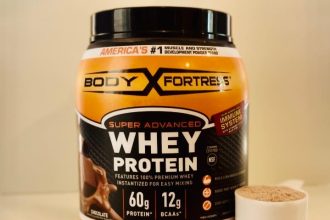The Shift in Nutritional Trends
The cookbook section in second-hand bookstores serves as a time capsule of changing health perspectives. Here, you can observe the cycling fate of various food items—eggs, butter, and red meat; once viewed as villains, later reaccepted by evolving health experts.
In 2025, we find ourselves in the age of protein—specifically, the push for increased protein intake. Initiated by bodybuilders and fitness enthusiasts, this trend has now been embraced by mainstream culture.
Who Really Needs More Protein?
While athletes require higher protein levels for muscle growth and exercise maintenance, the average individual, such as a busy parent, may not share the same needs. Grocery store shelves are lined with products boasting their protein content, proclaiming, “18 grams per serving!” and “Protein-rich!”
Social media influencers are also riding this wave, offering tips on incorporating more protein into everyday foods like cookies and pancakes. Cottage cheese has recently gained popularity, finding its way into everything from pasta sauces to dessert bars. Ads for “gourmet protein powders” entice consumers into adding protein to their morning beverages.
On platforms like Instagram, many women share videos focusing on “high-protein lunchboxes” and “six ways to consume 100g of protein.” One particularly striking example featured a food blogger, who once championed plant-based diets, devouring half a rotisserie chicken and captioning her post: “Gotta hit those protein goals!”
The Nauseating Reality of Protein Goals
Motivated by curiosity, I decided to determine my daily protein requirements based on recommendations from various online sources. The outcome was overwhelming: I would need to consume seven eggs for breakfast, a full chicken breast for lunch, more meat for dinner, along with multiple protein-rich snacks like Greek yogurt, nuts, and protein bars to meet these targets.
This obsession with protein transcends mere dietary trends; it resembles disordered eating cloaked in an appeal to wellness. While protein itself is essential for muscle repair, hormone production, immune function, and satiety, the fixation on it can be counterproductive.
The Problematic Protein Obsession
For instance, the National Institutes of Health suggests that a healthy, active 175-pound man should aim for approximately 63 grams of protein daily. However, MyFitnessPal recommends a staggering 164 grams—more than double that federal guideline.
Alice Callahan, a health reporter for The New York Times with a Ph.D. in nutrition, notes, “The average man in the United States is overshooting the federal protein recommendation by more than 55%,” and “the average woman by more than 35%.”
What Happens to Excess Protein?
But what does the body do with all this excess protein? It cannot store it; instead, the liver converts surplus protein into energy. If that energy is not used, the body stores it as fat.
So, why is there such an obsession with protein intake? One possible answer lies in the sources of nutritional advice. A 2017 study published in the Journal of the Academy of Nutrition and Dietetics revealed that nearly half of registered dietitians had signs of orthorexia nervosa—an unhealthy preoccupation with eating “correctly.”
The Gender Dynamics of Eating Disorders
Women are significantly more susceptible to eating disorders than men, and the current protein trend is predominantly female-driven. Although the high-protein craze may appear less dangerous compared to other dietary fads that reject entire food groups, its underlying obsession mirrors previous extremes.
When every meal revolves around protein content rather than nourishment, it signals a troubling mindset. A healthy protein intake should arise from natural, unprocessed foods—like eggs, fish, beans, nuts, meat, and dairy—not from mass-produced powders or bars that resemble compressed chalk.
The Path to Balanced Eating
There is no need to meticulously count every gram of protein or hit arbitrary targets. Instead, focus on consuming a diverse array of whole foods, which will naturally meet your body’s needs. Food not only serves to fuel our bodies but should also be a source of enjoyment. Choking down bland meals is not the essence of health.
Ultimately, if wellness lacks balance, sanity, and flexibility, it cannot truly be considered wellness.
Bethany Mandel writes and podcasts at The Mom Wars and is a homeschooling mother of six in greater Washington, D.C.






